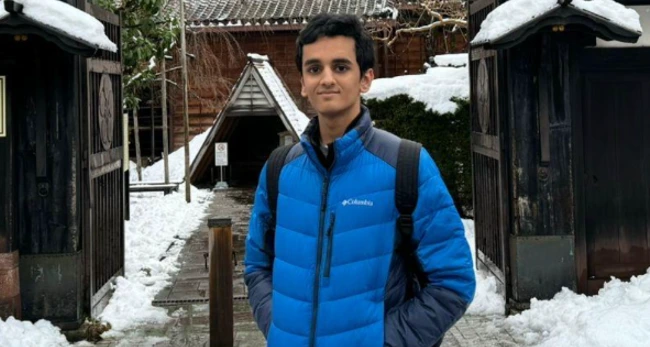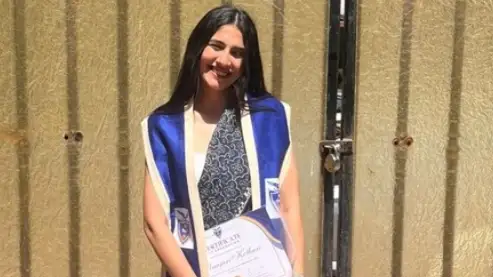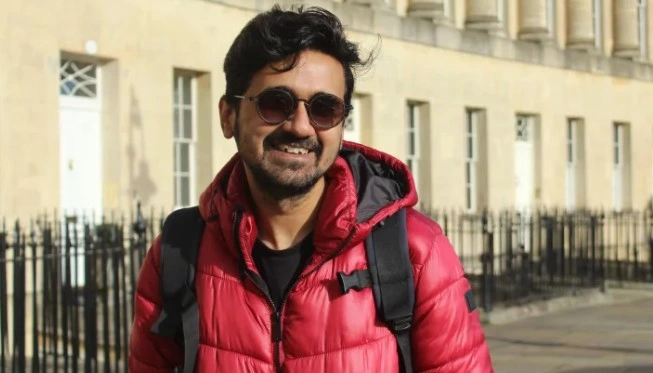-
For admission in the UK, IELTS, TOFEL or SAT isn’t mandatory
-
More opportunities in the UK to make your CV eligible for further studies, especially in law
-
Stepping out of your comfort zone leads to growth – embrace challenges
-
Education in the UK is a mix of lectures and self-study
-
A cultural exchange that redefines inclusivity and diversity
(March 14, 2024) Stepping outside the Manchester airport, it was a gust of breeze that welcomed Amin Haq to the UK. Back home in Nagpur, it was still pretty hot but September in the UK meant the onset of winters. It was the weather that added to the novelty of his journey. “For them, it was summers,” he smiles as he connects with Global Indian from Manchester. A few months into the University of Manchester, the 17-year-old feels that he is on a life-changing journey. “I have evolved in so many ways in such a short span.”
Opting for an unconventional course
Choosing a degree in law for his undergraduate abroad, Amin calls it “an unconventional choice.” However, it fits right with his future plans. “I intend to do International Law and Foreign Relations, and eventually work for an international organisation. But in India, you don’t get as many opportunities to make your CV eligible for that. In a short time of my arrival, I bagged an internship with a student-run international organisation – Isaac,” reveals Amin for whom this was one of the motivating factors to pursue law in the UK.
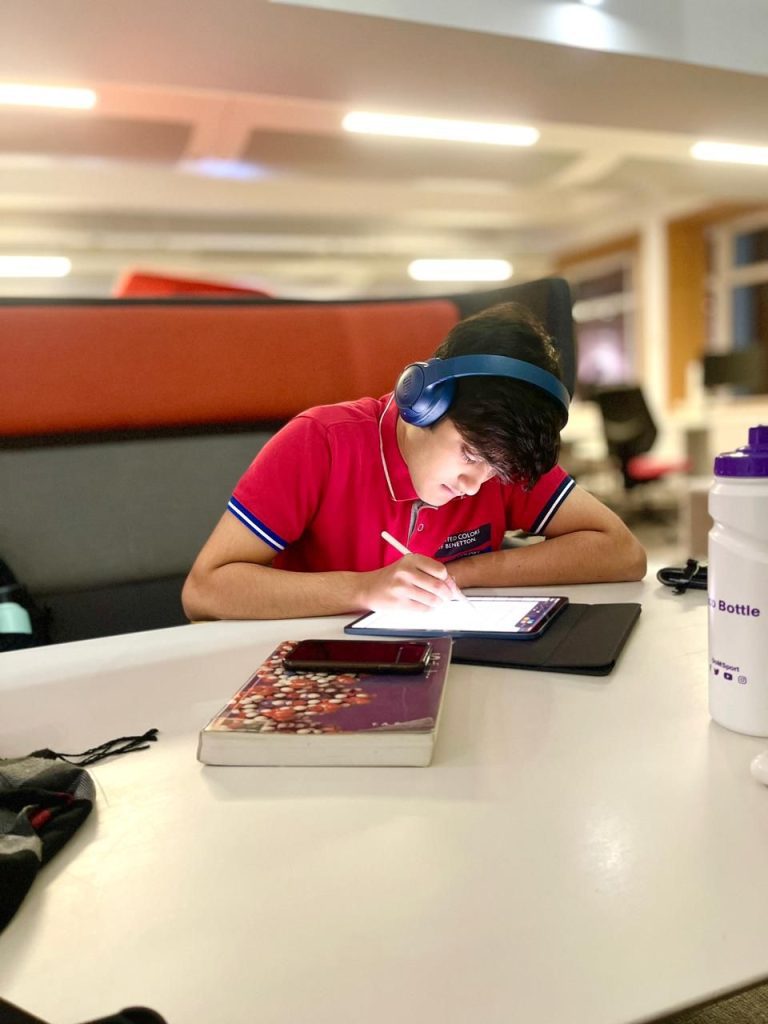
Amin Haq
“The admission process in the UK is much easier than the US as you don’t have to take SAT or TOFEL or IELTS,” discloses Amin, and this turned out to be a game-changer for the teenager. Calling the admission process much simpler, he reveals that one can apply on a central portal – UCAS for a maximum of five universities in the UK in one go. “You need to submit a letter of recommendation from your teacher along with a statement of purpose.”
However, he is quick to add that requirements vary from university to university. “For some universities in the UK that offer Law courses, you are also required to give your L-NAT score. But that’s not the case with the University of Manchester. Once you meet the criteria, you get a conditional offer.” This would be converted into an unconditional offer only if he could score 90 percent in Class 12th board with 85 percent and above in English for him to waive off IELTS and 80 percent and above in any two subjects. “Once you meet the requirement, they release the CAS (Confirmation of Acceptance for Studies) statement, which is the bible for all the processes. It is the most important document,” says Amin, who had his heart set on the University of Manchester. “It provides a good population of international students, and supports the new students to embrace the new environment effortlessly.”
Moving out of the comfort zone
But moving to a new country at 17 comes with its own set of challenges. At some point, you realise that this is one of the biggest decisions of your life and there is no going back. “Back home, you lived a protected life, with all your friends just a call away. You never had to worry about finances, thanks to your parents. But with the time difference, I now think twice before calling up my friends. Moving from a comfort zone to this new setup was a bit shocking, but fun at the same time.” Settling in a new country is never easy but Amin says “Once you realise that you are surrounded by new people and culture, it becomes easier to incorporate your way through it.”
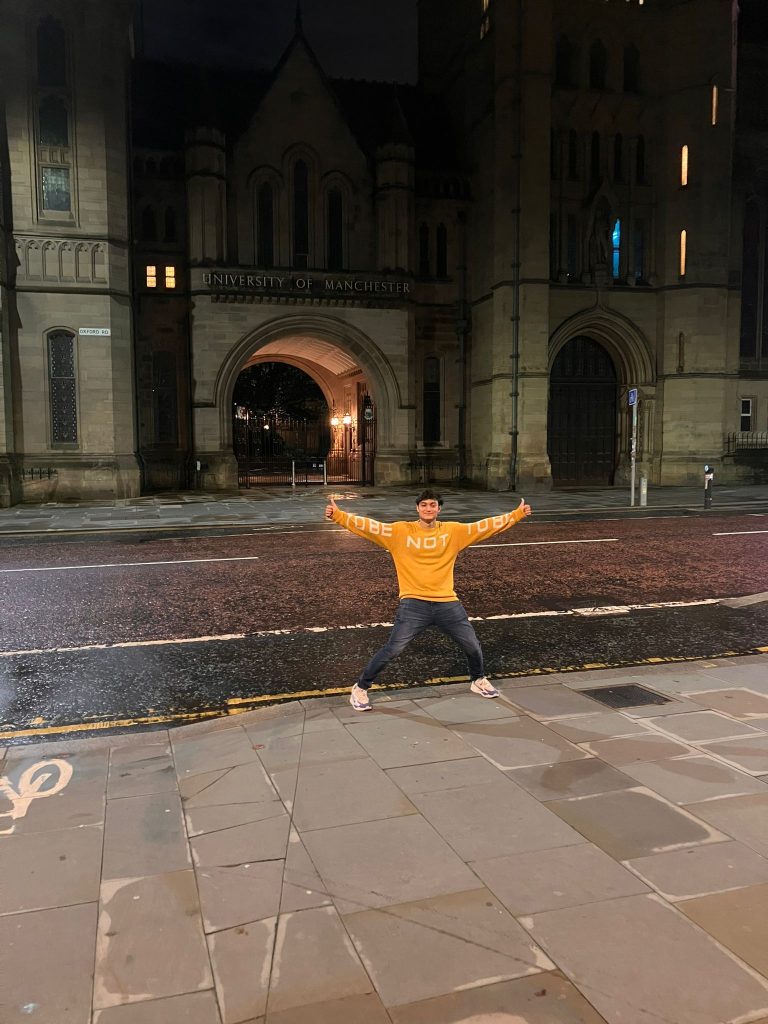
It’s the first week at the university that he remembers vividly. The excitement was palpable during Fresher’s Week which was a mix of events, society fairs, and many activities. Moreover, seeing many Indian faces on the campus gave him the confidence to find his support system. But what was even more exciting was meeting people from different cultures. “The first week was just letting us know what this university is capable of.”
A stark contrast in study culture
Stepping into the classroom for the first few weeks, Amin saw a stark contrast in the study culture between India and the UK. While teachers in India are always on their toes asking students to pull up their socks now and then, in the UK, “faculty will not be bothered unless you make the effort. They will provide you with resources and fix your mistakes, but won’t hover around you.” Moreover, he calls education in the UK a mix of lectures and self-study. “After every lecture for every subject, we get additional reading. Also, to strengthen our concepts from the lectures, we have workshops and assignments. It’s something that we don’t get in India and they cement the concepts with you. But if you want to master the concept, you do a lot of reading.”
Since Amin finds himself spending hours reading, he has found a love for libraries on the campus – with Alan Gilbert Learning Commons being his favourite. It’s accessible 24 hours, and is just a three-minute walk from my dorm. Strangely, it makes me want to study,” he laughs, adding, “We have some of the best libraries in the country. Our main library at the University of Manchester is one of the five national research centres, and it is very well equipped. In total, we have seven libraries on the campus.”

Alan Gilbert Learning Commons
Moreover, the university provides resources including access to material on paid websites for which they have already bought the subscriptions. “There is WestLaw and a tool called Lexus, through which you can research case laws, legal journals, and various statutes.”
Finding a home away from home
With inflation hitting through the roof in the UK, Amin is relieved that he has accommodation on the campus. But after nine months, he will be on the lookout for a different university accommodation or renting an apartment with friends. “Around 80 percent of students move in with their friends by the second year since you don’t have the freedom to choose your flatmates in university accommodation. However, renting private spaces is expensive on the pocket as the accommodation for four people on average costs £700.” Currently, he shares his university accommodation with eight people – six Britishers, one Vietnamese, and another Malaysian. “All of us are very welcoming of each other and our cultures. We get to experience a cultural exchange under one roof.”
Being in the UK for a few months now, Amin does have his moments of homesickness and during those times, he finds comfort in talking to his family and friends.” At times when I think talking to them can exacerbate the feeling of homesickness, I try to distract my mind by doing other things. However, one needs to make peace with the fact that you are here. You have spent a lot of money and expectations are riding high, not just of your family but of yourself. You need to work things out through that,” he adds.
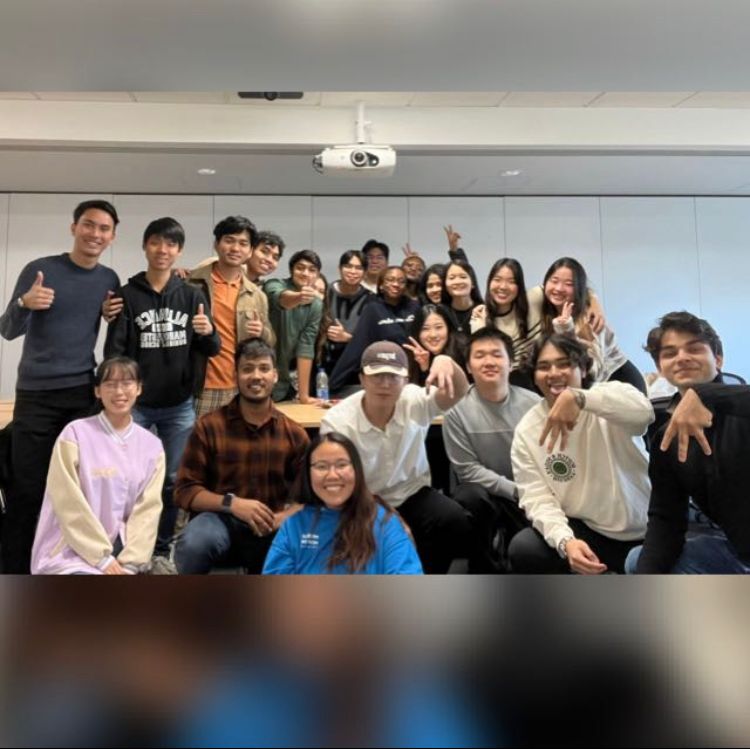
Studying abroad has made Amin a responsible person. For someone who was living under the shadow of his parents, he found freedom and responsibility knocking on his door. “After coming here, I had to open a UK bank account and collect Biometric Residence Permit (BRP), my student ID. Back home, parents were keeping a tab on such things. But I now see myself multitasking – doing chores, managing my finances, writing my assignments, attending classes, grocery shopping.”
Ask him if he has any advice for students harbouring the dreams of studying abroad, and he quips, “Be rational. Even if you have been dreaming of studying abroad and going to your dream university, it’s not going to be all fun and games. It’s going to be real hard work and not a vacation for you. It’s going to live up to your expectations in a lot of ways but also challenge you.”
Also Read: Minal Sukumar: How to do a PhD in the UK

